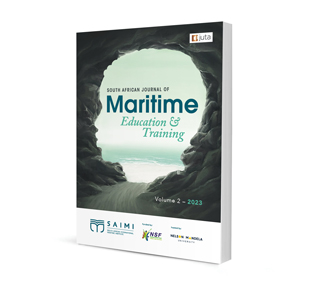
The rise of digitalisation and automation in the shipping industry and their impacts on training and system safety
Authors Scott N MacKinnon, Reto Weber and Monica Lundh
ISSN: 2790-783X
Affiliations: Professor in Human Factors, Department of Mechanics and Maritime Sciences, Maritime Human Factors Research Group, Chalmers University, Gothenburg, Sweden; Simulator Manager/Lecturer, Department of Mechanics and Maritime Sciences, Maritime Human Factors Research Group, Chalmers University, Gothenburg, Sweden; Professor in Human Factors, Department of Mechanics and Maritime Sciences, Maritime Human Factors Research Group, Chalmers University, Gothenburg, Sweden
Source: South African Journal of Maritime Education and Training, Volume 2 Issue 1, p. 83-96
https://doi.org/10.47348/SAJMET/2023/i1a6
Abstract
The ubiquitous application of digitalisation and automation within the maritime shipping industry will create disruptions that will have profound effects on how work is performed in the industry. The practice of safe navigation will require an evolution and subsequent evolvement of how operators and technologies interact in a complex sociotechnical system if a better understanding of system safety is to be achieved. Predictions of how actors and agents in the same workspace will emerge. This paper focuses on the current levels of automation prevalent in the navigation sector, a futuristic prediction and foresight of challenges related to the emergence of technologies, automation and artificial intelligence, and the competencies required related to the training of future seafarers.